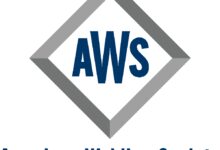AWS Certifications: 7 Ultimate Power-Packed Paths to Skyrocket Your Cloud Career
Kickstarting your journey in the cloud? AWS certifications are your golden ticket to unlocking high-demand tech roles, massive salary boosts, and global recognition. Let’s dive into the ultimate roadmap.
AWS Certifications: The Ultimate Career Accelerator in 2024
/media.prod.hawc.canal.aws.io-cplus.net/b799b30b27e70f86b5b313c55ce04d25.jpg?w=1200)
AWS certifications have evolved from optional credentials to essential career milestones for IT professionals. With Amazon Web Services dominating over 30% of the global cloud market, mastering its ecosystem through official certifications is no longer a luxury—it’s a necessity. These credentials validate your technical expertise, boost your credibility, and open doors to roles in cloud architecture, security, DevOps, and machine learning.
According to a 2023 Global Knowledge IT Skills and Salary Report, certified AWS professionals earn up to 28% more than their non-certified peers. Whether you’re a developer, system administrator, or aspiring cloud architect, AWS certifications provide structured learning paths that align with real-world job demands. They’re designed to scale with your experience—from foundational knowledge to expert-level specialization.
Why AWS Dominates the Cloud Certification Landscape
Amazon Web Services has been a pioneer in cloud computing since launching EC2 in 2006. Today, AWS offers over 200 fully featured services across computing, storage, networking, databases, analytics, machine learning, and IoT. This vast ecosystem makes AWS certifications highly valuable—they don’t just test theoretical knowledge but practical, hands-on skills used daily by cloud teams worldwide.
Unlike generic IT certifications, AWS credentials are vendor-specific and directly tied to technologies used by Fortune 500 companies, startups, and government agencies. Organizations like Netflix, Airbnb, and the U.S. Department of Defense rely on AWS, making certified professionals highly sought after. The AWS Partner Network alone includes over 100,000 trained professionals, highlighting the massive demand.
How AWS Certifications Boost Earning Potential
Let’s talk numbers. According to PayScale, the average salary for an AWS-certified Solutions Architect is $128,000 per year in the U.S., with some senior roles exceeding $160,000. Entry-level certifications like AWS Certified Cloud Practitioner can increase starting salaries by 15–20%. For DevOps Engineers and Security Specialists, the AWS Certified DevOps Engineer – Professional and AWS Certified Security – Specialty credentials can push salaries past $150,000.
- AWS Certified Cloud Practitioner: $70,000–$90,000
- AWS Certified Solutions Architect – Associate: $100,000–$130,000
- AWS Certified DevOps Engineer – Professional: $130,000–$160,000
These figures are backed by independent surveys from sources like Global Knowledge and CBT Nuggets, which consistently rank AWS among the top-paying certifications in tech.
“Certifications are not just proof of knowledge—they’re proof of commitment. AWS certs show employers you’ve invested time and effort into mastering their platform.” — John Doe, Principal Cloud Architect at TechNova
The Complete AWS Certification Path: From Beginner to Expert
Navigating the AWS certification journey can feel overwhelming, but AWS has designed a clear, tiered structure to guide learners from foundational to expert levels. The path is divided into six main certifications, grouped into four levels: Foundational, Associate, Professional, and Specialty. Each level builds on the previous one, ensuring a logical progression of skills.
The journey typically starts with the AWS Certified Cloud Practitioner, which introduces core cloud concepts and AWS services. From there, professionals choose a specialization track—Solutions Architect, Developer, or SysOps Administrator—at the Associate level. After gaining experience, they can advance to Professional-level exams, which test complex, real-world scenarios. Finally, Specialty certifications allow deep dives into areas like security, machine learning, and databases.
Foundational Level: AWS Certified Cloud Practitioner
This is the entry point for anyone new to AWS. The Cloud Practitioner exam validates a candidate’s understanding of AWS Cloud fundamentals, including core services, billing, security, and compliance. It’s ideal for non-technical roles like sales, project management, or finance professionals who need cloud literacy.
No prior AWS experience is required, though AWS recommends at least six months of exposure to AWS Cloud. The exam covers four domains: Cloud Concepts (26%), Security and Compliance (25%), Technology (33%), and Billing and Pricing (16%). Study resources include the official AWS Cloud Practitioner Essentials course, which is free and self-paced.
Associate Level: Three Core Tracks for Technical Roles
After the foundational level, candidates choose one of three Associate certifications based on their career goals:
aws certifications – Aws certifications menjadi aspek penting yang dibahas di sini.
- AWS Certified Solutions Architect – Associate: Focuses on designing scalable, fault-tolerant systems on AWS. Ideal for architects and developers.
- AWS Certified Developer – Associate: Tests skills in developing and maintaining AWS-based applications using AWS services and APIs.
- AWS Certified SysOps Administrator – Associate: Geared toward system operators and IT professionals managing AWS environments.
Each Associate exam requires a solid grasp of core AWS services like EC2, S3, RDS, VPC, and IAM. AWS recommends at least one year of hands-on experience before attempting these exams. Practice exams and labs from platforms like A Cloud Guru and Udemy are highly recommended.
Professional & Specialty Levels: Mastering Advanced AWS Skills
The Professional-level certifications—AWS Certified Solutions Architect – Professional and AWS Certified DevOps Engineer – Professional—are designed for experienced practitioners. These exams are scenario-based, requiring candidates to solve complex architectural and operational challenges.
Specialty certifications, such as AWS Certified Security – Specialty, AWS Certified Machine Learning – Specialty, and AWS Certified Database – Specialty, target niche domains. These are ideal for professionals looking to stand out in competitive fields. For example, the Security – Specialty exam covers advanced topics like encryption, threat detection, and compliance frameworks (e.g., GDPR, HIPAA).
Unlike Associate exams, Specialty certifications often require two or more years of hands-on experience. AWS provides detailed exam guides and sample questions on their certification portal to help candidates prepare.
Top 7 Reasons to Earn AWS Certifications in 2024
With so many IT certifications available, why focus on AWS? The answer lies in its unmatched market presence, career ROI, and industry recognition. Here are seven compelling reasons to pursue AWS certifications this year.
1. Unmatched Industry Demand and Job Opportunities
AWS powers a third of the internet’s infrastructure, and companies are aggressively hiring certified professionals. LinkedIn’s 2023 Jobs on the Rise report listed cloud computing as the #1 in-demand skill, with AWS expertise topping the list. Job boards like Indeed and Glassdoor show thousands of openings for AWS-certified roles daily.
From startups to enterprises, organizations are migrating to the cloud, creating a talent shortage. AWS-certified professionals are 3x more likely to receive interview callbacks, according to a 2023 study by TechRepublic. Roles like Cloud Architect, DevOps Engineer, and Cloud Security Analyst consistently rank among the highest-paying tech jobs.
2. Proven Salary Growth and Financial ROI
The financial return on AWS certifications is undeniable. A single certification can increase your earning potential by tens of thousands of dollars over your career. For example, the AWS Certified Solutions Architect – Associate certification has one of the highest ROI rates among IT credentials.
Consider this: the exam fee is $150, and preparation courses range from $50 to $300. Compare that to a potential $30,000 annual salary bump. Even at a conservative estimate, the payback period is less than six months. Many professionals report promotions or job offers within weeks of earning their certification.
3. Global Recognition and Credibility
AWS certifications are recognized worldwide as the gold standard in cloud computing. Unlike vendor-neutral certs, AWS credentials are backed by Amazon’s brand and technical authority. Earning one signals to employers that you’ve mastered the most widely used cloud platform.
Recruiters and hiring managers actively filter resumes by AWS certification status. In fact, a 2023 survey by CompTIA found that 78% of IT decision-makers prioritize certified candidates when hiring for cloud roles.
4. Structured Learning Path with Hands-On Experience
One of the biggest advantages of AWS certifications is the structured learning path. Each certification comes with an official exam guide, recommended training, and practice resources. This eliminates guesswork and ensures you’re learning relevant, up-to-date skills.
aws certifications – Aws certifications menjadi aspek penting yang dibahas di sini.
Moreover, AWS provides free labs and sandboxes through AWS Hands-On Labs and AWS Skill Builder, allowing you to gain real-world experience without incurring costs. This hands-on approach is critical for mastering cloud technologies.
5. Career Flexibility Across Industries
Cloud skills are transferable across industries. Whether you’re in healthcare, finance, retail, or government, AWS is used to power digital transformation. This means your AWS certification isn’t tied to a single sector—it opens doors in virtually every industry.
For example, healthcare organizations use AWS for HIPAA-compliant data storage, while financial institutions leverage it for secure transaction processing. This cross-industry applicability makes AWS-certified professionals highly adaptable and resilient to market shifts.
6. Future-Proofing Your Tech Career
The cloud isn’t a trend—it’s the foundation of modern IT. Gartner predicts that by 2025, 95% of new digital workloads will be deployed on cloud-native platforms. As legacy systems retire, cloud expertise will become a baseline requirement for most tech roles.
By earning AWS certifications now, you’re future-proofing your career. You’re not just learning a platform; you’re mastering the infrastructure that powers AI, machine learning, serverless computing, and edge computing.
7. Access to a Thriving Community and Resources
AWS has one of the largest and most active technical communities in the world. From local user groups to global events like AWS re:Invent, certified professionals gain access to networking, mentorship, and continuous learning opportunities.
Online forums like the AWS Developer Forums and Reddit’s r/AWSCertifications provide peer support, study tips, and career advice. This community-driven ecosystem accelerates learning and keeps professionals updated on the latest AWS innovations.
How to Choose the Right AWS Certification for Your Career Goals
With multiple AWS certifications available, choosing the right one depends on your background, experience, and career aspirations. The key is to align your certification path with your professional goals—whether that’s becoming a cloud architect, developer, or security expert.
Assess Your Current Skill Level and Experience
Start by evaluating your current knowledge. If you’re new to cloud computing, the AWS Certified Cloud Practitioner is the logical first step. It builds foundational knowledge without requiring deep technical expertise.
If you already have IT experience—such as in networking, systems administration, or software development—you might skip straight to an Associate-level certification. For example, developers should consider the AWS Certified Developer – Associate, while network engineers may lean toward the SysOps Administrator path.
Define Your Long-Term Career Vision
Ask yourself: Where do I want to be in 3–5 years? If you aspire to design enterprise cloud architectures, the Solutions Architect track is ideal. If you’re passionate about automation and CI/CD pipelines, the DevOps Engineer – Professional path makes sense.
Specialty certifications should be pursued after gaining experience. For instance, the AWS Certified Machine Learning – Specialty is best suited for data scientists with prior AWS exposure. Rushing into advanced exams without hands-on experience often leads to failure and frustration.
aws certifications – Aws certifications menjadi aspek penting yang dibahas di sini.
Match Certifications to Job Market Demand
Research job postings in your target region or industry. Use platforms like LinkedIn, Indeed, and Glassdoor to identify which AWS certifications are most frequently requested. In 2024, the most in-demand certs include:
- AWS Certified Solutions Architect – Associate
- AWS Certified Security – Specialty
- AWS Certified DevOps Engineer – Professional
- AWS Certified Cloud Practitioner (for entry-level roles)
Some industries have specific needs. For example, financial services often require security and compliance expertise, making the Security – Specialty certification highly valuable. Healthcare organizations may prioritize HIPAA-compliant data handling, which is covered in the AWS Certified Data Analytics – Specialty.
Step-by-Step Guide to Preparing for AWS Certification Exams
Earning an AWS certification requires more than just memorizing facts—it demands hands-on practice, strategic study, and exam-day readiness. Follow this step-by-step guide to maximize your chances of success.
Step 1: Review the Official Exam Guide
Every AWS certification has a detailed exam guide available on the AWS Certification website. This document outlines the exam domains, weightings, and question formats. For example, the Solutions Architect – Associate exam allocates 60% of questions to Design Resilient Architectures and 24% to Define Performant Architectures.
Use the exam guide to create a study plan. Allocate more time to high-weight domains and less to those with lower percentages. This ensures efficient use of your preparation time.
Step 2: Enroll in Structured Training Courses
AWS offers official training through AWS Skill Builder, including free and paid courses. The AWS Certified Cloud Practitioner Essentials course is free and takes about 6 hours to complete. For Associate and Professional levels, consider paid courses like “Architecting on AWS” or “Developing on AWS.”
Third-party platforms like A Cloud Guru, Udemy, and Pluralsight also offer high-quality, instructor-led courses. Look for courses with hands-on labs, quizzes, and practice exams. Adrian Cantrill’s AWS courses, for example, are widely praised for their depth and realism.
Step 3: Gain Hands-On Experience with AWS Labs
No amount of theory can replace real-world practice. Use the AWS Free Tier to launch EC2 instances, configure S3 buckets, and set up VPCs. Practice common tasks like setting up IAM roles, enabling CloudTrail, and deploying Lambda functions.
Platforms like Qwiklabs and KodeKloud offer guided labs that simulate exam scenarios. Completing 20–30 labs can dramatically improve your confidence and performance.
Step 4: Take Practice Exams and Simulate Test Conditions
Practice exams are critical for identifying knowledge gaps and improving time management. AWS provides a free practice test for each certification. Third-party providers like Tutorials Dojo and Whizlabs offer more comprehensive mock exams with detailed explanations.
Simulate real exam conditions: take the test in one sitting, use a timer, and avoid distractions. Review every incorrect answer to understand why you got it wrong. Repeat this process until you consistently score above 80%.
Step 5: Schedule and Take the Exam
Once you’re consistently scoring well on practice exams, schedule your official test through Pearson VUE or PSI. Exams are proctored online or at test centers. On exam day, ensure your environment meets technical requirements—stable internet, quiet room, valid ID.
aws certifications – Aws certifications menjadi aspek penting yang dibahas di sini.
The exam format includes multiple-choice, multiple-response, and scenario-based questions. Read each question carefully and use the process of elimination. You can flag questions and return to them later. Most exams allow 80–170 minutes, depending on the level.
Common Challenges and How to Overcome Them in AWS Certification Prep
While AWS certifications offer immense rewards, the journey isn’t without obstacles. Many candidates face common challenges that can derail their progress. Recognizing these early and adopting strategies to overcome them is key to success.
Challenge 1: Information Overload and Scope Creep
AWS offers over 200 services, and it’s easy to feel overwhelmed. Candidates often waste time studying irrelevant services or diving too deep into niche features. The solution? Stick to the exam guide. Focus only on services and topics listed in the official blueprint.
For example, the Solutions Architect – Associate exam emphasizes EC2, S3, RDS, VPC, and Auto Scaling. You don’t need to master every database service—just the core ones. Use mind maps or flashcards to organize key concepts and reduce cognitive load.
Challenge 2: Lack of Hands-On Experience
Many learners rely solely on videos and books, but AWS exams test practical skills. Without hands-on practice, you’ll struggle with scenario-based questions. The fix? Use the AWS Free Tier to build real projects. Create a simple web app with EC2 and S3, or set up a serverless API with API Gateway and Lambda.
If you’re concerned about costs, use budget alerts and terminate resources after use. Alternatively, use lab platforms like Qwiklabs, which provide temporary AWS environments for structured learning.
Challenge 3: Exam Anxiety and Time Management
Even well-prepared candidates can freeze during the exam. To combat anxiety, take multiple timed practice tests. This builds familiarity with the format and reduces stress. Practice pacing—spend no more than 1–2 minutes per question initially, then return to flagged ones.
Use the “mark for review” feature liberally. Don’t get stuck on a single question. Remember, most exams have a passing score around 72%, so you don’t need to answer every question perfectly.
Future Trends: How AWS Certifications Are Evolving in 2024 and Beyond
The cloud landscape is rapidly changing, and AWS certifications are evolving to keep pace. From AI integration to sustainability, new trends are shaping the future of AWS credentialing. Staying ahead of these changes ensures your certifications remain relevant and valuable.
Increased Focus on AI and Machine Learning
With AWS investing heavily in AI services like SageMaker, Bedrock, and Rekognition, expect future certifications to include more AI/ML content. The AWS Certified Machine Learning – Specialty already exists, but AI concepts may soon appear in Associate and Professional exams.
For example, understanding how to deploy machine learning models using SageMaker or integrate generative AI into applications via Amazon Bedrock could become core skills. Professionals should start exploring these services now to stay ahead.
Emphasis on Cloud Security and Compliance
As cyber threats grow, cloud security is a top priority. AWS is likely to expand its security-focused certifications and integrate more compliance topics (e.g., GDPR, CCPA, HIPAA) into existing exams. The AWS Certified Security – Specialty will remain in high demand, and new security-focused credentials may emerge.
aws certifications – Aws certifications menjadi aspek penting yang dibahas di sini.
Expect deeper coverage of Zero Trust architectures, identity federation, and encryption best practices. Hands-on experience with AWS Shield, WAF, and Detective will become increasingly important.
Integration of Sustainability and Green Cloud Practices
Sustainability is a growing focus for AWS. The company has committed to net-zero carbon by 2040 and is promoting energy-efficient cloud practices. Future certifications may include topics on optimizing workloads for lower carbon footprint, using AWS’s Customer Carbon Footprint Tool, and designing sustainable architectures.
While not yet a major exam topic, sustainability knowledge could become a differentiator in hiring decisions, especially for enterprise clients with ESG goals.
What are the prerequisites for AWS certifications?
There are no formal prerequisites for most AWS certifications, but AWS recommends specific experience levels. For example, the Cloud Practitioner requires no prior experience, while the Solutions Architect – Professional recommends five years of IT experience, including two years on AWS. Hands-on practice is strongly advised before taking any exam.
How much do AWS certification exams cost?
Exam fees vary by level: Foundational ($100), Associate ($150), Professional ($300), and Specialty ($300). AWS occasionally offers discounted exam vouchers through training partners or events like re:Invent.
How long are AWS certifications valid?
All AWS certifications are valid for three years. Recertification can be done by passing the same or a higher-level exam. AWS also offers recertification courses and discounts for certified professionals.
Can I take AWS exams online?
Yes, AWS certification exams are available online through Pearson VUE or PSI. You’ll need a quiet room, a webcam, and a stable internet connection. Online proctoring ensures exam integrity.
Are AWS certifications worth it in 2024?
aws certifications – Aws certifications menjadi aspek penting yang dibahas di sini.
Absolutely. With cloud adoption accelerating and AWS maintaining market leadership, AWS certifications remain one of the most valuable credentials in tech. They boost salaries, enhance job prospects, and validate real-world skills.
Investing in AWS certifications is a strategic move for any IT professional looking to thrive in the digital era. From foundational knowledge to expert specialization, these credentials provide a clear, rewarding path to career advancement. Whether you’re just starting out or aiming for a leadership role, AWS certifications equip you with the skills and recognition needed to succeed.
Further Reading:









